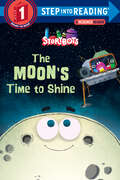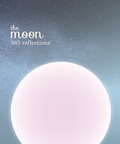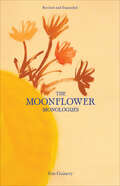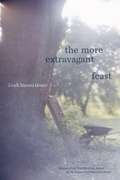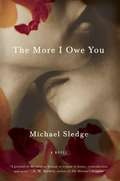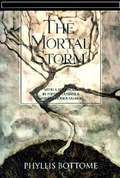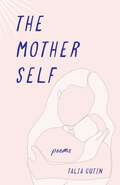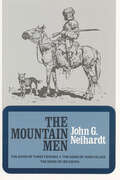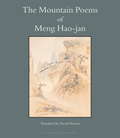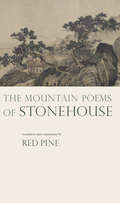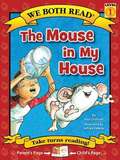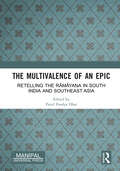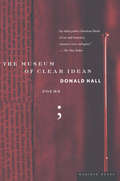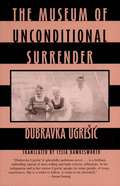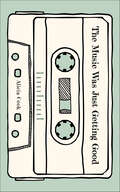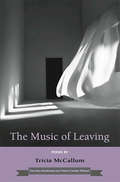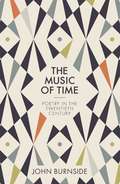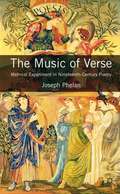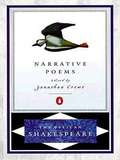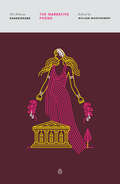- Table View
- List View
The Moon's Time to Shine (Step into Reading)
by StorybotsJust in time for the 50th anniversary of the moon landing! The inquisitive crew from the award-winning StoryBots apps, videos, and Emmy Award-winning Netflix show star in a Step 1 reader that is over the moon!Children will recognize the signature catchy rhymes and colorful art from the StoryBots' popular YouTube video "The Moon's Time to Shine." They will learn that the moon orbits Earth, that--in spite of glowing brightly--it doesn't make its own light, and more! Step 1 readers feature big type and easy words for children who know the alphabet and are eager to begin reading. Rhyming text is paired with picture clues to help children decode the story.
The Moon: 365 reflections
by PyramidThroughout history, legend and myth, the Moon has symbolized immortality and eternity, enlightenment and adventure and has inspired poets, philosophers, astronomers and artists. Reflections upon the Moon from literature, philosophy, science and ancient wisdom are gathered together in this enchanting collection.
The Moonflower Monologues
by Tess GuineryFrom celebrated Australian artist Tess Guinery comes The Moonflower Monologues, her second book of beautifully designed poetry and prose. This collection is many things: an exploration of strength and femininity, an invitation to let things go wrong, a reminder that growth comes in many forms, and an acknowledgment that &“some things can&’t be written in sugar, only salt.&” Some of the writings are extravagant, some are sparse, but all are infused with Guinery&’s introspection, stillness, and kindness.
The More Extravagant Feast: Poems
by Leah Naomi Green* One of the Boston Globe's Best Books of 2020 *Winner of the Walt Whitman Award of the Academy of American Poets, selected by Li-Young LeeThe More Extravagant Feast focuses on the trophic exchanges of a human body with the world via pregnancy, motherhood, and interconnection—the acts of making and sustaining other bodies from one’s own, and one’s own from the larger world. Leah Naomi Green writes from attentiveness to the vast availability and capacity of the weedy, fecund earth and from her own human place within more-than-human life, death, and birth. Lyrically and spiritually rich, striving toward honesty and understanding, The More Extravagant Feast is an extraordinary book of awareness of our dependency on ecological systems—seen and unseen.
The More I Owe You
by Michael SledgeIn this mesmerizing debut novel, Michael Sledge creates an intimate portrait of the beloved poet Elizabeth Bishop -- of her life in Brazil and her relationship with her lover, the dazzling, aristocratic Lota de Macedo Soares. Sledge artfully draws from Bishop's lifelong correspondences and biography to imagine the poet's intensely private world, revealing the literary genius who lived in conflict with herself both as a writer and as a woman. A seemingly idyllic existence in Soares's glass house in the jungle gives way to the truth of Bishop's lifelong battle with alcoholism, as well as her eventual status as one of modernism's most prominent writers. Though connected to many of the most famous cultural and political figures of the era, Soares too is haunted by her own demons. As their secrets unfold, the sensuous landscape of Rio de Janeiro, the rhythms of the samba and the bossa nova, and the political turmoil of 1950s Brazil envelop Bishop in a world she never expected to inhabit. The More I Owe You is a vivid portrait of two brilliant women whose love for one another pushes them to accomplish enduring works of art.
The Morning Glory
by Robert Bly(from the back cover) This book collects the prose poems Robert Bly has been writing over the last seven or eight years. The prose poem, he believes, appears whenever a country's psyche and literature begin to move toward abstraction. An ancient tradition holds that those who long for what is beyond sight have to look more closely at what the eyes can see. In daydreams we lose the visible. So these poems pay their attention to the creatures or objects immediately around the poet, whether he is in Wyoming or on his own farm in Minnesota or near a dying seal on some Pacific rocks. The world is violated by greedy observation, but the aim of gentle observation is "to enter the forest without moving a blade of grass." There turns out to be, in moments at least, no break between the energy flowing inside a man or woman and the energy flowing through plants and creatures "out there." Bly lives near where he was born in western Minnesota. He works with a Minnesota writers' collective, edits the Seventies, and has recently published translations of contemporary Swedish poets and the fifteenth-century Hindi poet, Kabir.
The Mortal Storm
by Phyllis BottomeFreya Roth has everything a young woman could want. Her father is a kind and brilliant professor, her mother loving and beautiful, and there are three fine brothers. She is studying to be a doctor, and her suitro is rich and handsome. Then Hitler comes into power. Her older half-brothers turn against their stepfather, who is Jewish, and both are members of the Nazi Party. At the same time, Freya meets a young Communist peasant with whom she falls in love. Personal and political differences destroy the family's once uncloded happiness, and danger grows for Freya. This book, written in 1938, foreshadowed the horrors of years to come. It was also a feminist statement, made in an entertaining way. A film of this story with James Steward and Margaret Sullivan radically changed the plot although some of the seeds that must have attracted the producers are still there. However, the book is much less conventional and more forthright. "The Mortal Storm" is a poignant, exciting and thought-provoking book.
The Mother Self: Poems
by Talia GutinIn this debut collection of poetry, The Mother Self guides readers along the raw and transformative path of early motherhood.The Mother Self is a collection of poetry that poignantly unveils the journey of a new mother navigating the complexities of early motherhood. Accessible and engaging, each poem captures a mother's delicate dance as she embraces her new identity and grieves her past self, all while finding solace in the sacred bond with her son. Readers are invited to explore the beauty and challenges of this period of life with grace and authenticity and to linger in the quiet spaces of a mother&’s heart, where love and loss intertwine and a meaningful journey of growth unfolds. This collection weaves the universal themes of presence, nature, loss, and transformation. It guides readers on a path of healing and empowerment and offers a comforting hand through the transformative power of words. More than a collection of poems, it is a companion for new and seasoned mothers as they turn each page, nodding in recognition. Above all, this book is a poetic testimony to every incomparable and holy step of motherhood.
The Mountain Men (Volume 1 of A Cycle of the West)
by John G. NeihardtRegarded by many as Dr. Neihardt's masterwork, the cycle as a whole "celebrates the great mood of courage that was developed west of the Missouri River in the nineteenth-century."The first volume in this two-volume edition of A Cycle of the West includes The Song of Three Friends (1919), which received the National Prize of the Poetry Society of America, The Song of Jed Smith (1941).The first two songs, in the poet's words, "deal with the ascent of the river and characteristic adventures of Ashley-Henry men in the country of the upper Missouri and the Yellowstone. The Song of Jed Smith follows the first band of Americans through South Pass to the Great Salt Lake, the first band of Americans to reach Spanish California by an overland trail."
The Mountain Poems of Meng Hao-Jan
by David Hinton Meng Hao-JanThe first full flowering of Chinese poetry occurred in the illustrious T'ang Dynasty, and at the beginning of this renaissance stands Meng Hao-jan (689-740 c.e.), esteemed elder to a long line of China's greatest poets. Deeply influenced by Ch'an (Zen) Buddhism, Meng was the first to make poetry from the Ch'an insight that deep understanding lies beyond words. The result was a strikingly distilled language that opened new inner depths, non-verbal insights, and outright enigma. This made Meng Hao-jan China's first master of the short imagistic landscape poem that came to typify ancient Chinese poetry. And as a lifelong intimacy with mountains dominates Meng's work, such innovative poetics made him a preeminent figure in the wilderness (literally rivers-and-mountains) tradition, and that tradition is the very heart of Chinese poetry.This is the first English translation devoted to the work of Meng Hao-jan. Meng's poetic descendents revered the wisdom he cultivated as a mountain recluse, and now we too can witness the sagacity they considered almost indistinguishable from that of rivers and mountains themselves.
The Mountain Poems of Stonehouse
by Red Pine"The Mountain Poems of Stonehouse [is] a tough-spirited book of enlightened free verse. "#151;Kyoto Journal The Zen master and mountain hermit Stonehouse#151;considered one of the greatest Chinese Buddhist poets#151;used poetry as his medium of instruction. Near the end of his life, monks asked him to record what he found of interest on his mountain; Stonehouse delivered to them hundreds of poems and an admonition: "Do not to try singing these poems. Only if you sit on them will they do you any good. " Newly revised, with the Chinese originals and Red Pine's abundant commentary and notes, The Mountain Poems of Stonehouse is an essential volume for Zen students, readers of Asian literature, and all who love the outdoors. After eating I dust off a boulder and sleep and after sleeping I go for a walk on a cloudy late summer day an oriole sings from a sapling briefly enjoying the season joyfully singing out its heart true happiness is right here why chase an empty name Stonehouse was born in 1272 in Changshu, China, and took his name from a cave at the edge of town. He became a highly respected dharma master in the Zen Buddhist tradition. Red Pine is one of the world's leading translators of Chinese poetry. "Every time I translate a book of poems," he writes, "I learn a new way of dancing. And the music has to be Chinese. " He lives near Seattle, Washington.
The Mouse In My House (We Both Read)
by Jeffrey Ebbeler Paul OrshoskiA boy does everything he can to catch a mouse in this zany and funny tale. The smart little mouse seems to be having the time of his life evading capture until suddenly he is scooped into a jar and carried off far from home. However, the mouse gets the last laugh as he finds his way back home and takes over the house with a lot of his furry little friends.
The Mouse of Amherst
by Elizabeth SpiresWhen a mouse named Emmaline takes up residence behind the wainscoting of Emily Dickinson's bedroom, she wonders what it is that keeps Emily scribbling at her writing table throughout the day and into the night. Emmaline sneaks a look, and finds that it's poetry! Inspired, Emmaline writes her own first poem and secretly deposits it on Emily's desk. Emily answers with another poem, and a lively exchange begins. In this charming and fanciful introduction to Emily Dickinson, Elizabeth Spires demonstrates the power of poetry to express our deepest feelings. Included are eight of Dickinson's most loved poems, with seven corresponding poems by Emmaline that are sure to bring out the poet in any child.
The Multivalence of an Epic: Retelling the Rāmāyaṇa in South India and Southeast Asia
by Parul Pandya DharThis volume examines The Rāmāyaṇa traditions of South India and Southeast Asia. Bringing together 19 well-known scholars in Rāmāyaṇa studies from Cambodia, Canada, France, India, Indonesia, Malaysia, Singapore, Thailand, UK, and USA, this thought-provoking and elegantly illustrated volume engages with the inherent plurality, diversity, and adaptability of the Rāmāyaṇa in changing socio-political, religious, and cultural contexts. The journey and localization of the Rāmāyaṇa is explored in its manifold expressions – from classical to folk, from temples and palaces to theatres and by-lanes in cities and villages, and from ancient to modern times. Regional Rāmāyaṇas from different parts of South India and Southeast Asia are placed in deliberate juxtaposition to enable a historically informed discussion of their connected pasts across land and seas. The three parts of this volume, organized as visual, literary, and performance cultures, discuss the sculpted, painted, inscribed, written, recited, and performed Rāmāyaṇas. A related emphasis is on the way boundaries of medium and genre have been crossed in the visual, literary, and performed representations of the Rāmāyaṇa. Print edition not for sale in South Asia (India, Sri Lanka, Nepal, Bangladesh, Pakistan and Bhutan)
The Museum of Clear Ideas: Poems
by Donald Hall“With The One Day, this is his best work, a modest, skeptical, and brave poetry that embodies something essential about this late American century.” —Harvard ReviewThis is Donald Hall’s most advanced work, extending his poetic reach even beyond his recent volumes. Conflict dominates this book, and conflict unites it. Hall takes poetry as an instrument for revelation, whether in an elegy for a (fictional) contemporary poet, or in the title series of poems, whose form imitates the first book of the Odes of Horace. The book’s final section, “Extra Innings,” moves with poignancy to questions about the end of the game.“A stunning volume of testamentary verse . . . an often perfect American blend of rue and buoyancy, narrative verve and grace.” —The New Yorker“Donald Hall is our finest elegist. The Museum of Clear Ideas is as original, idiosyncratic, and un-museumlike a poetic work as we are likely to see for a long time to come.” —Richard Tillinghast, The New Criterion“Hall’s poems make ‘durable relics’ of late twentieth-century life in much the same way that Byron’s Don Juan does for the early nineteenth. The ‘clear ideas,’ however, are timeless.” —Beloit Poetry Journal“These are some of the darkest lines Donald Hall has ever composed. They move through aching poignancy through illness diagnosed, sorrow, and poignant revelation, yet the final chord is not one of despair.” —Robert Taylor, Boston Globe“A collection of powerful new poems . . . Hall’s voice is more mature and classically spare than ever, offering revelatory glimpses of wisdom.” —Publishers Weekly“A brilliantly inventive tour de force . . . A significant and engaging book.” —Library Journal
The Museum of Unconditional Surrender
by Dubravka Ugresic Celia HawkesworthThe Museum of Unconditional Surrender captures the shattered world of a life in exile. Some chapters re-create the daily journal of the narrator's lonely and alienated mother, who shops at the improvised flea-markets in town and longs for her children; another is a dream-like narrative in which a circle of women friends are visited by an angel. There are reflections and accounts of the Holocaust and the Yugoslav Civil War; portraits of European artists; a recipe for Caraway Soup; a moving story of a romantic encounter the narrator has in Lisbon; descriptions of family photographs; memories of the small town in which Ugresic was raised. Addressing the themes of art and history, aging and loss, The Museum is a haunting and an extremely original novel.
The Music Was Just Getting Good
by Alicia CookAlicia Cook is back with the highly anticipated final tracklist in her poetry collection of mixtapes, The Music Was Just Getting Good. Following in the footsteps of her first two installments, Stuff I&’ve Been Feeling Lately (2016) and Sorry I Haven&’t Texted You Back (2020), Cook is closing out her trilogy with a poignant and all too relatable look at the ebbs and flows of life. And why, even during our most difficult seasons, a better day can appear just around the corner. Spread across 184 tracks (92 poems and 92 blackout poems), each paired with an accompanying song, Cook returns to her evergreen themes of mental health, hope, and recovery, and reminds readers that grief is not reserved solely for death. We may grieve who we used to be, moments that never came to pass, physical places, and, of course, people; people who&’ve died, but also those who left, and those we had to leave behind. A stunning closing number in a timely and necessary collection of work, The Music Was Just Getting Good is the balm your soul has been waiting for.
The Music of Humanity: A Critical Study of Wordsworth's Ruined Cottage Incorporating Texts from a Manuscript of 1799—1800
by Jonathan WordsworthA careful analysis including biographical information.
The Music of Leaving: Poems
by Tricia McCallumThere is a music of leaving, as surely as there is that of arriving. And it is this distinct soulful music that we often hear, however faintly, in the background of our lives. McCallum’s poems are about elephants being traipsed through the Queens Midtown Tunnel, an unstable child’s slide, and roaming island dogs. About a visit to a family home before it is sold, a late night conversation in a plane above an ocean, and shrewd Irish falcons. About eloquent gravestones, da Vinci’s unfinished joke book, the elegant legs of a heron, and landing on the moon. About a jackknife dive at dusk, a young girl’s sleepover, and a memory instantly evoked by brushing against a stand of lavender. McCallum’s hope for her new book The Music of Leaving is that it delivers to her readers those “magical moments of understanding” that a good poem can.
The Music of Time: Poetry in the Twentieth Century
by John BurnsideA revelatory and deeply personal history of twentieth-century poetry by prize-winning poet and memoirist John BurnsidePoetry helps us to make sense of our world, transforming what the Russian poet Osip Mandelstam called the "noise of time" into a kind of music. The Music of Time is a unique history of twentieth-century poetry by one of today's most acclaimed poets, blending incandescent personal meditations with rare insights about a broad range of poets who distilled the essence of the moment, gave voice to our griefs and joys, and shaped our collective memory.Bringing together poets from times and places as diverse as Tsarist Russia, 1960s Harlem, and Ireland at the height of the Troubles, Burnside reveals how poetry responded to the dramatic events of the century while shaping our impressions of them. He takes readers from the trenches of World War I to a prison cell in Nazi Germany, and from Rilke's grave in the Swiss Alps to Dylan Thomas's Welsh seaside. His luminous narrative is woven through with insights into the poet's creative process as well as lyrical and thought-provoking digressions on topics ranging from marriage to the Kennedy assassination.A spellbinding work of literary history, The Music of Time reveals how poets engaged with the most important issues and events of the twentieth century, and bears personal witness to the beauty and power of an art form unlike any other.
The Music of Verse
by Joseph PhelanThrough its recovery of the metrical principles underlying the work of some of the century's major poets, this study highlights the intricacy of the relation between the 'music' of verse and its meaning, and helping us to understand the way in which the ferment of metrical experiment eventually led to the emergence of free verse.
The Music of What Happens: Poems That Tell Stories
by Paul B. JaneczkoA collection of bitter-sweet, thought-provoking poems by a variety of modern authors
The Names of the Lost
by Philip LevineThe 2011-2012 U.S. Poet Laureate writing in his rich period of the 1970s.
The Narrative Poems
by William Shakespeare Stephen Orgel A. R. Braunmuller Jonathan Crewe"I feel that I have spent half my career with one or another Pelican Shakespeare in my back pocket. Convenience, however, is the least important aspect of the new Pelican Shakespeare series. Here is an elegant and clear text for either the study or the rehearsal room, notes where you need them and the distinguished scholarship of the general editors, Stephen Orgel and A. R. Braunmuller who understand that these are plays for performance as well as great texts for contemplation." (Patrick Stewart) The distinguished Pelican Shakespeare series, which has sold more than four million copies, is now completely revised and repackaged. Each volume features: * Authoritative, reliable texts * High quality introductions and notes * New, more readable trade trim size * An essay on the theatrical world of Shakespeare and essays on Shakespeare's life and the selection of texts
The Narrative Poems: The Complete Non-dramatic Poetry (The Pelican Shakespeare)
by William ShakespeareThe acclaimed Pelican Shakespeare series edited by A. R. Braunmuller and Stephen Orgel The legendary Pelican Shakespeare series features authoritative and meticulously researched texts paired with scholarship by renowned Shakespeareans. Each book includes an essay on the theatrical world of Shakespeare’s time, an introduction to the individual play, and a detailed note on the text used. Updated by general editors Stephen Orgel and A. R. Braunmuller, these easy-to-read editions incorporate over thirty years of Shakespeare scholarship undertaken since the original series, edited by Alfred Harbage, appeared between 1956 and 1967. With definitive texts and illuminating essays, the Pelican Shakespeare will remain a valued resource for students, teachers, and theater professionals for many years to come. For more than seventy years, Penguin has been the leading publisher of classic literature in the English-speaking world. With more than 1,700 titles, Penguin Classics represents a global bookshelf of the best works throughout history and across genres and disciplines. Readers trust the series to provide authoritative texts enhanced by introductions and notes by distinguished scholars and contemporary authors, as well as up-to-date translations by award-winning translators.
